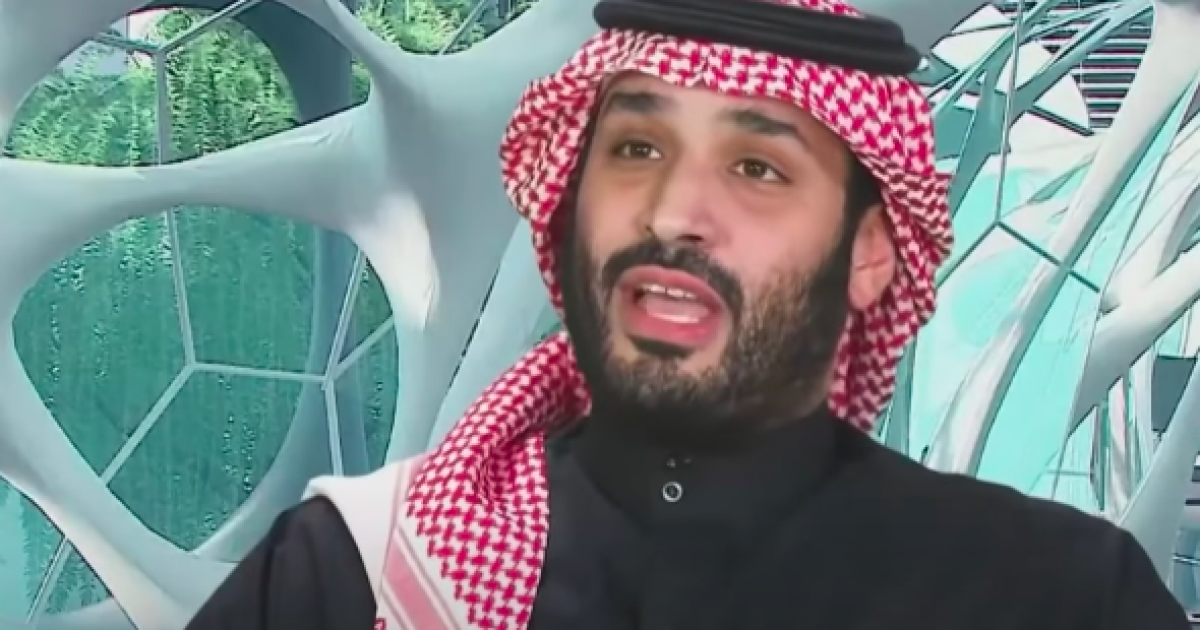
Saudi Arabia is working on a new digital news platform that will be based in Washington, D.C., according to a report by Brian Schwartz of CNBC. This is part of the kingdom’s new efforts to lobby the White House.
Details of this project have been scant, but there is speculation that the Saudi news platform will have a studio in Washington, D.C.
This new effort is being backed by a subsidiary of the Saudi Technology Development and Investment Company (Taqnia), per new foreign lobbying disclosures that were filed with the Department of Justice.
Some of the journalists and news presenters have previous experience at outlets like Fox News, Al Jazeera, NBC, and SiriusXM satellite radio. The creation of this news venture comes during a time when the Arab kingdom is recalibrating relations with the US after the Biden administration slapped limited sanctions on individuals allegedly implicated in the murder of journalist Jamal Khashoggi. Throughout the campaign trail, Biden promised to take a hard line on Saudi Arabia for the Kingdom’s alleged role in carrying out the murder of Saudi journalist Jamaal Khashoggi.
Despite the tough rhetoric and vows to implement sanctions, the Biden administration ended up imposing small sanctions on a limited number of Saudi individuals. However, the Saudis don’t want to take any chances and are working to mend relations with the Biden administration to prevent further hostilities.
Saudi Arabia has come under the microscope for its controversial involvement in the Yemeni Civil War and the role it played in the gruesome murder of Khashoggi.
“We held accountable all the people in that organization — but not the crown prince [Bin Salman], because we have never that I’m aware of, when we have an alliance with a country, gone to the acting head of state and punished that person and ostracized him,” Biden said during a recent interview with ABC News. Biden ended up not punishing the Saudi crown prince for his alleged role in the assassination of Khashoggi.
Taqnia ETS, a company with a focus on engineering and technological services for Saudi Arabia, is the primary entity backing this project.
According to Taqnia’s website, the company is owned by the kingdom’s over $400 billion Public Investment Fund (PIF), the Gulf Arab state’s vast sovereign wealth fund. The PIF’s mission consists of investing into private sector projects and bolstering the Saudi economy.
A lobbying disclosure report says that Taqnia ETS is “supervised and financed by the Saudi Ministry of Information.” In addition, the lobbying documents reveal that a company by the name of Prime Time Media is spearheading the effort. Prime Time Media’s CEO Elie Nakouzi is helping out with the creation of the new digital news organization. Nakouzi’s company received $1.6 million to preside over this project.
According to the purchase order that it’s in the lobbying disclosure, the work Prime Time Media is engaged in was described as “English content for news platform.” The documents revealed that over $75,000 has already been spent on equipment, freelancers and a Washington, D.C., studio.
One of the documents that details Nakouzi’s involvement in this project declares that Prime Time Media will “assist clients in the video production of English news content. In doing so, registrant will not participate in the dissemination of said news content.”
According to the disclosure, Nakouzi has citizenship in Lebanon but lives in the United States. Nakouzi has a track record of working in Middle East media circles.
In email correspondence with CNBC, Nakouzi revealed several facets of Taqnia’s project. Most notable being that it will be a new online platform and that a studio has been created.
“Taqnia plans to launch an international online platform before the end of this year,” Nakouzi said in the email correspondence with CNBC. “As for the Studio, we have built a fully equipped virtual green room for future use,” he added.
Saudi Arabia’s relationship with the US dates back to the 1930s, which was largely based on its vast oil reserves that helped fuel the US’s economic growth and rise as an industrial superpower.
However, there is reason to believe that its relationship with the Gulf Arab state has run its course. Saudi Arabia has a long history of funding religious fundamentalists in conflict zones such as Afghanistan, Bosnia, Chechnya, and Syria. In addition, 15 of the 19 9/11 hijackers are Saudi nationals.
While it’s up in the air how involved elements of the Saudi government were during 9/11, it’s clear that the country is not exactly the sharpest tool in the shed when it comes to security matters and keeping its nationals in check. In addition, it’s very much reliant on the U.S’s security blanket for its defense needs.
For a country that boasts a per capita GDP of $23,266, Saudi Arabia should actually be making more moves to become increasingly autonomous. Sadly, the US is still dumping billions in arms sales to it and has close to 600 troops stationed there to potentially confront countries like Iran.
There comes a time when countries like Saudi Arabia must be completely cut off and compelled to start defending their own interests or at least pacting with countries in its own region to handle its own problems. The US has far too many problems to begin with and it’s time that policymakers start focusing inward and instead of regions of the world that are perennially unstable regardless of what moves the US makes or doesn’t make.



